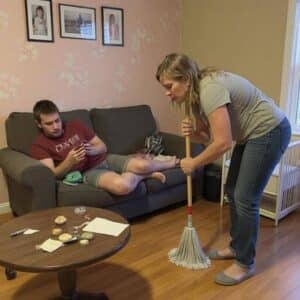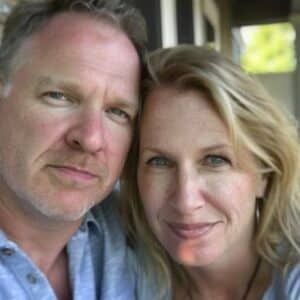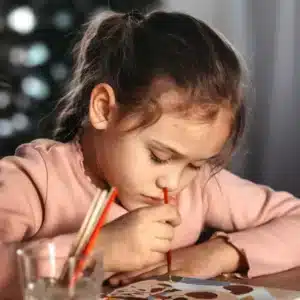It started with a whisper.
Just a passing remark from Mrs. Patterson to the mailman as she slowly collected her letters one chilly morning: “Well… my birthday’s next week, not that anyone’s counting anymore.”
She chuckled softly as she spoke, the kind of laugh people use to cushion loneliness so it doesn’t sound too loud.
Leo heard her. Of course he did.
My son, Leo, has the kind of heart that picks up pieces other people miss. A crumpled flower on the sidewalk? He’d stop to replant it. A kid sitting alone at recess? That’s his new lunch buddy. So when he tugged on my sleeve that day, eyes wide and voice urgent, I already knew what he was going to say.
“Mom. We have to do something for her. We have to.”
I hesitated. We weren’t close to Mrs. Patterson. She lived just two houses down—quiet, neat, always polite, but never lingering long in conversation. The kind of neighbor you waved at but never truly knew.
Still, Leo was resolute. “Everyone deserves a birthday cake,” he said, as if it were a rule of the universe.
So we baked one.
It wasn’t perfect. The frosting leaned to one side and Leo insisted on adding rainbow sprinkles in the shape of a smiley face. He drew a card too—crayon stick figures of him, me, and Mrs. Patterson, standing under a giant yellow sun. “Birthday people,” he labeled it in crooked letters.
That evening, just before dinner, we walked to her door. Leo clutched the cake, nervous but excited. We knocked once. No answer. He glanced up at me, lips trembling.
But then the door creaked open.
Mrs. Patterson stood there, blinking behind thick glasses, cardigan buttoned all the way to her chin. “Yes?” she asked cautiously.
Leo grinned. “Happy Birthday!”
He held out the cake with both hands, like an offering to royalty.
And for a second, she didn’t move. Her eyes flicked between the cake and Leo’s wide grin. Then, slowly, tears welled in her eyes. She brought one trembling hand to her mouth.
“You… you don’t understand,” she whispered. “This is the first birthday cake I’ve had in over forty years.”
She swallowed hard. “After my husband died, the celebrations stopped. I guess… I figured if no one else remembered, maybe I shouldn’t either.”
A silence stretched between us, thick with things left unspoken. All I could do was blink back tears.
But Leo wasn’t one for silence.
He reached out and gently took her hand, his small fingers wrapping around hers like he’d done it a hundred times.
“Well, you have to matter now,” he said simply. “Because we’re your birthday people.”
She let out a shaky laugh—part joy, part disbelief—and stepped aside to let us in.
Her home was quiet. Tidy but still. Like someone had once loved it deeply, but the love had gone elsewhere. The walls held faded family photos and old clocks that ticked too softly. A single picture sat on the mantle—Mrs. Patterson as a young woman, glowing beside a man in uniform.
She placed the cake on a small table, pulled a candle from a drawer—just one, probably the only one—and lit it with reverence. She closed her eyes before blowing it out, whispering something too quiet to catch.
That moment cracked something open.
From then on, she started waving from her porch each morning. One day, she left cookies on our doorstep—Leo declared them better than any bakery. We visited more often. She told us stories of her youth, about dance halls and handwritten letters and a son who had moved far away and rarely called anymore.
Then came the school project.
Leo burst through the door, backpack bouncing, cheeks flushed. “Mom! We have to interview someone from another generation. I want to do mine on Mrs. Patterson!”
I didn’t even need to ask why.
She was thrilled—flattered, even. For two afternoons, Leo sat on her couch, a notebook in hand, recording stories about ration stamps, black-and-white movies, and how she met her husband at a New Year’s dance in 1956.
A week later, Leo’s teacher posted the interview online as part of a community feature.
And then, the impossible happened.
Mrs. Patterson called me. Her voice shook. “My son… he saw the interview.”
I stood still, heart thudding.
“He called me,” she continued. “He said… he hadn’t realized how long it had been. He wants to visit.”
Her voice cracked with emotion. “He said… he’s proud of me.”
When he arrived, I watched from the window as a man with gray-streaked hair stepped from his car, shoulders stiff, unsure. But the moment he saw her, they just folded into each other. No speeches. No drama. Just years of silence mended in a quiet embrace.
That next year, Mrs. Patterson didn’t need a surprise.
She planned a party.
She made a list. She baked cookies. Her son flew in again. And she invited us—her “birthday people,” as she still calls us. The living room filled with laughter, cake crumbs, and second chances.
Every year since, we celebrate together. And now, every time Leo hears someone mention a birthday, his ears perk up. Because once, with a cake and a crayon drawing, he changed someone’s life.
And maybe… he changed ours too.





